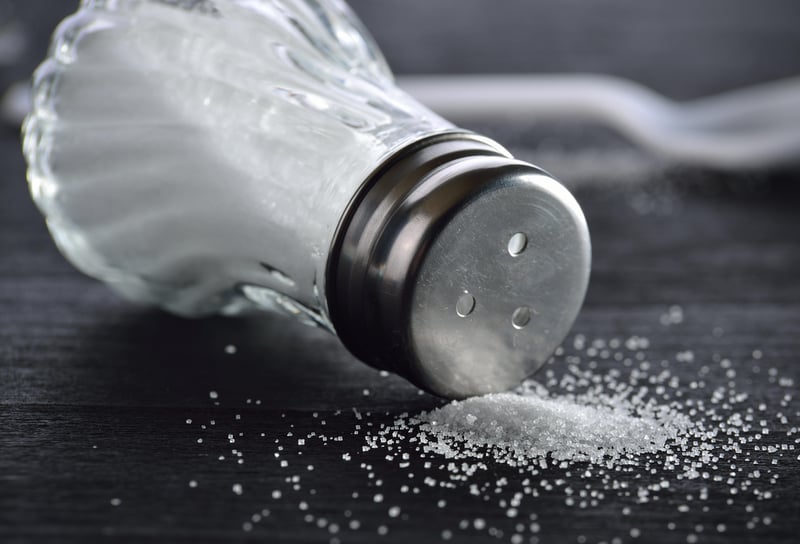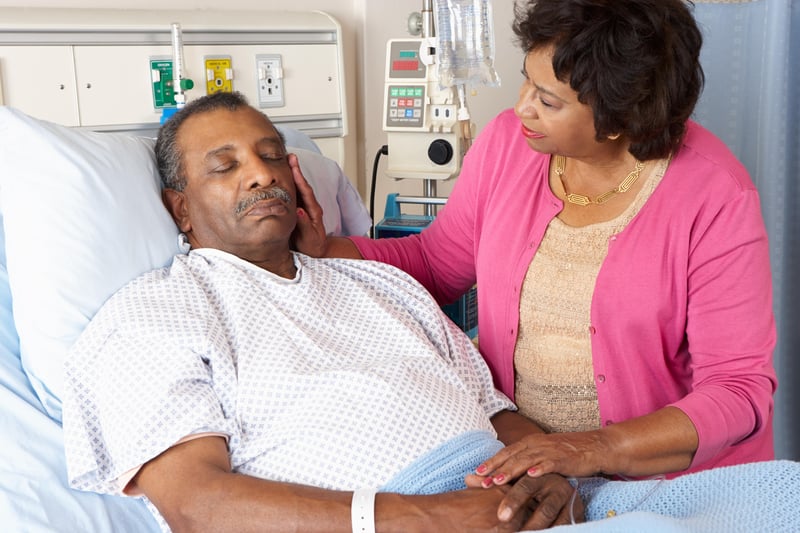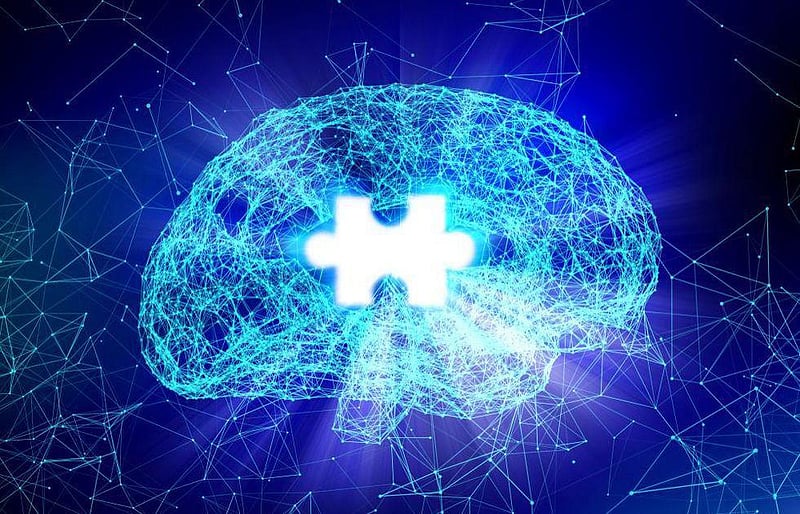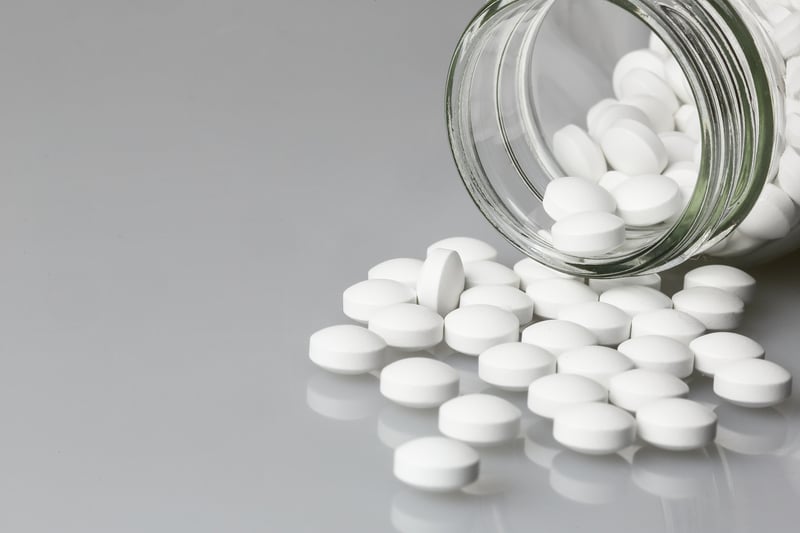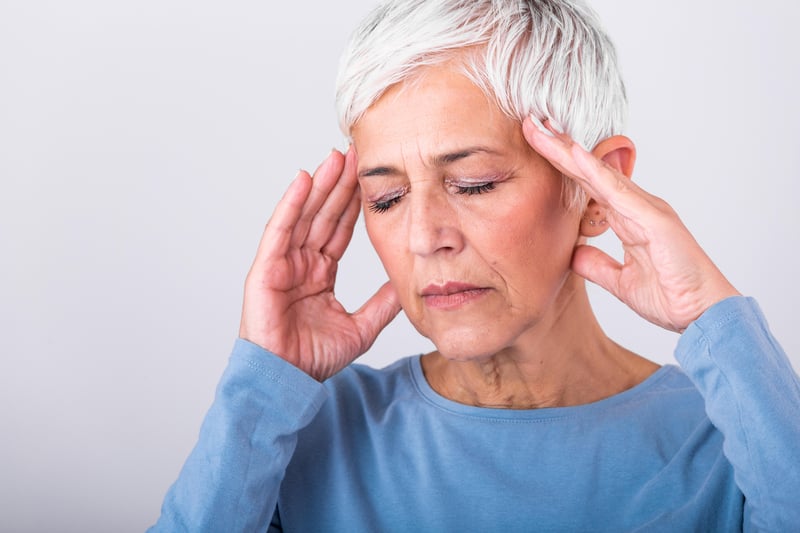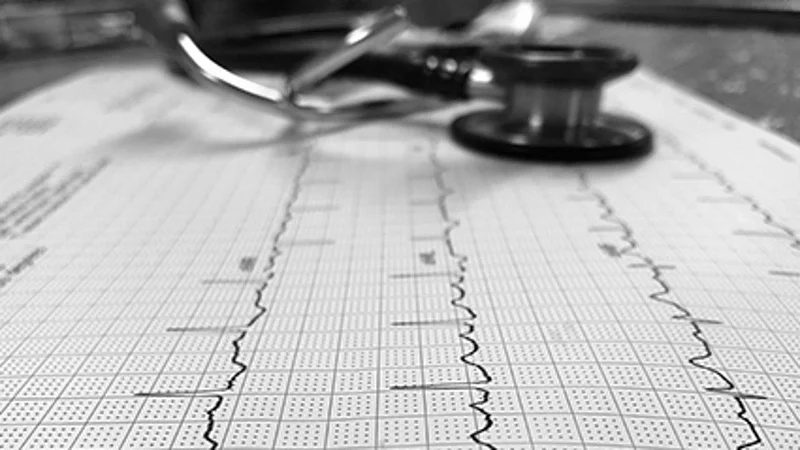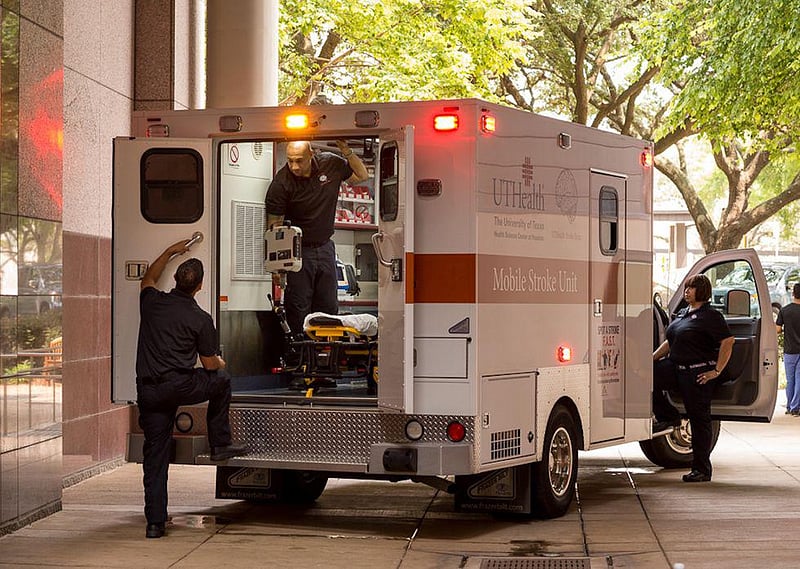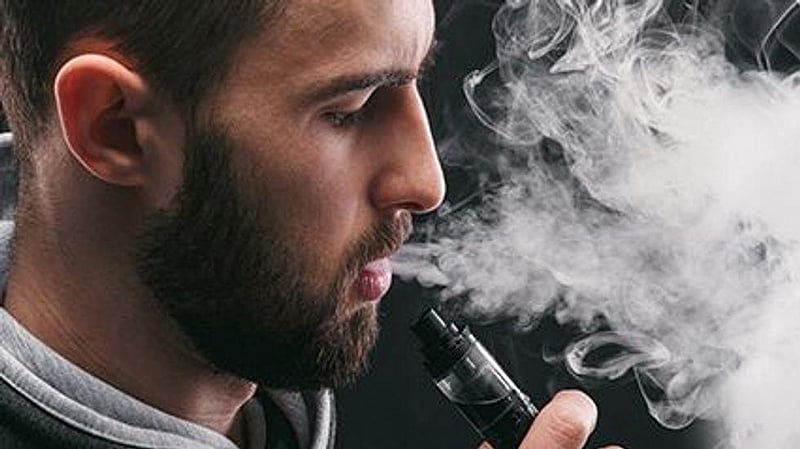Get Healthy!
259 Results for search "Heart / Stroke-Related: Stroke".
Health News Results - 259
COVID-19 vaccines do not increase your risk for stroke, new research shows, but severe COVID infection does, and experts hope the finding will ease the concerns of those who are hesitant to get the shot.
"We now know that patients who've had a vaccine are not at higher risk of stroke, thanks to a large body of data with millions of patients who have been included,"said Dr. Alexis Simpkins...
- HealthDay Reporter
- Sydney Murphy
- |
- August 30, 2022
- |
- Full Page
A smartphone video could detect a blocked blood vessel in your neck that could cause a stroke, a new study suggests.
The American Heart Association says videos may provide a non-invasive way to screen people who are at risk of stroke.
Nearly 87% of strokes are the ischemic type, which happens when fatty depos...
- HealthDay Reporter
- Cara Murez
- |
- August 17, 2022
- |
- Full Page
Swapping salt out for the salt substitute potassium chloride lowers blood pressure, and thereby the risk of heart attack, stroke and cardiovascular disease, a new analysis finds.
"It's in processed and prepared foods where most people in developed countries get their salt," explained senior researc...
- HealthDay Reporter
- Steven Reinberg
- |
- August 10, 2022
- |
- Full Page
A potentially dangerous change in heart rhythm is common after surgeries that don't involve the heart, according to Mayo Clinic researchers.
Dr. Konstantinos Siontis and colleagues studied patients who had atrial fibrillation (a-fib) after a noncardiac surgical procedure. These patients represent about 13% ...
- HealthDay Reporter
- Cara Murez
- |
- July 26, 2022
- |
- Full Page
While depression is common after a stroke, most stroke patients who need mental health care aren't getting the help they need, new research reveals.
Roughly one in three stroke victims have depression. But about two-thirds of those received no mental health treatment. Patients who were older, men, Black people or Hispanic folks were even less likely to get help, the study found.
"Th...
- HealthDay Reporter
- Cara Murez
- |
- July 25, 2022
- |
- Full Page
Memory loss is a common symptom after a stroke, but there's hope for some that those memories could return.
A new study from Norway examined 86 patients with relatively mild strokes and found many had improved mental functioning after 12 weeks.
"Our study shows that around half of patients suffering a stroke had various forms of memory impairment one week after the stroke. But by t...
- HealthDay Reporter
- Ellie Quinlan Houghtaling
- |
- July 15, 2022
- |
- Full Page
While many people suffer from depression after a stroke, a new study suggests depression often occurs beforehand and may be a warning sign.
"The study underscores why doctors need to monitor for symptoms of depression long term in people who have had strokes," said study author...
- HealthDay Reporter
- Ellie Quinlan Houghtaling
- |
- July 14, 2022
- |
- Full Page
If you survive cancer, you're more apt to have heart trouble later on, a new study shows.
Researchers found that compared to others, cancer survivors had a 42% greater risk of heart disease, most likely due to
Even though Black people may be more likely to live near a hospital with a certified stroke center, those who need the specialty care are still more likely to receive it at a hospital with fewer resources.
And this can hurt the...
- HealthDay Reporter
- Cara Murez
- |
- June 29, 2022
- |
- Full Page
Racial disparities in health outcomes persist in the United States, with Black and Hispanic Americans more likely to die within a month after a bleeding stroke than white Americans, a new study shows.
"We've known that there are disparities in death from stroke among racial and ethnic groups in the U.S. due to
It seemed a simple prospect - take a low-dose baby aspirin tablet once a day and reduce your risk of ever suffering a heart attack or stroke.
But new science has shown it's not that simple.
Noting the drug's risk of dangerous bleeding, the nation's leading panel of preventive health experts has reversed course and
Women are less likely than men to head back to their jobs after recovering from a severe stroke, but researchers say the reasons for that difference are unclear.
"Returning to work after a severe stroke is a sign of successful
It's a fate many older women fear: loneliness and isolation as they age. Now, new research suggests those feelings may also predispose them to heart disease.
The findings may be especially relevant now because of social distancing required by the pandemic.
"We are social beings. In this time of COVID-19, many people are experiencing
A newer type of "clot-busting" medication might be safer than the one long used for treating strokes, a preliminary study hints.
Researchers found that among nearly 7,900 stroke sufferers, those treated with the drug -- called tenecteplase -- were less likely to suffer life-threatening brain bleeding as a side effect, compared to those given the standard medication alteplase.
Overal...
- HealthDay Reporter
- Amy Norton
- |
- February 3, 2022
- |
- Full Page
Although there's been a marked decline in rates of stroke among older adults over the past 30 years, growing numbers of young Americans are having strokes.
Obesity may be one reason why, experts say.
"The decline in strokes in people aged 50 and older is likely due to better stroke risk factor control, such as...
- HealthDay Reporter
- Denise Mann
- |
- February 3, 2022
- |
- Full Page
Nine in 10 Americans -- 91% -- live within an hour of lifesaving stroke care, researchers say.
That's up from about 80% a decade ago, due to an increase in hospitals with specialized staff, tools and resources, as well as expanded use of telestroke ...
- HealthDay Reporter
- Robert Preidt
- |
- February 3, 2022
- |
- Full Page
Stroke is a possible complication of COVID-19, and researchers say they now know when that risk is highest.
A new study from the U.S. Centers for Disease Control and Prevention found the risk of COVID-related ischemic stroke appears greatest in the first three days after you're diagn...
- HealthDay Reporter
- Cara Murez
- |
- February 3, 2022
- |
- Full Page
Young adult pot smokers who've suffered a stroke are more likely to have another stroke if they keep toking, a new study finds.
Research has already linked heavy cannabis use with an increased risk of
Hospitalizations for dangerously high blood pressure more than doubled in the United States from 2002 to 2014, new research shows.
This jump in hospitalizations for what's called a "
Finding the right medication for rheumatoid arthritis isn't easy, and a newer pill against the disease carries higher risks of heart attack, stroke and cancer than older RA drugs, a new clinical trial confirms.
The study was mandated by the U.S. Food and Drug Administration after earlier safety signals about the drug, called tofacitinib (Xeljanz).
In response to the findings, p...
- HealthDay Reporter
- Amy Norton
- |
- January 27, 2022
- |
- Full Page
Strokes aren't common among young people, but when they do happen, they strike more often in women than men, a new review finds.
Of the nearly 800,000 Americans who suffer a stroke each year, 10% to 15% are adults age 45 or younger, according to the American Heart Association.
The new research suggests that young women may face a particular risk: Those age 35 and younger were 44% m...
- HealthDay Reporter
- Amy Norton
- |
- January 25, 2022
- |
- Full Page
Binge drinking on Super Bowl Sunday or other special occasions could put you at risk for a dangerous heart rhythm disorder called atrial fibrillation (a-fib), even if you've never had it, researchers warn in a new study.
"Worldwide, alcohol is the most popularly consumed drug, and it now is clear that alcohol consumption is an important risk factor for atrial fibrillation," said senior au...
- HealthDay Reporter
- Robert Preidt
- |
- January 13, 2022
- |
- Full Page
If you have any risk factors for stroke and you like to smoke pot, a new study suggests you should stop toking.
Researchers found that people with an aneurysmal subarachnoid hemorrhage, a rare, severe type of bleeding stroke, who had used marijuana three to 30 days before their stroke were twice as likely to deve...
- HealthDay Reporter
- Cara Murez
- |
- January 7, 2022
- |
- Full Page
COVID-19 is now the third leading cause of death for Americans and has shortened life expectancy by nearly two years, a drop not seen since World War II, a new government report shows.
Life expectancy dropped from 78.8 in 2010 to 77 in 2020 as the age-adjusted death rate increased 17%, going from 715 deaths per 100,000 people in 2019 to 835 deaths per 100,000 in 2020, researchers from th...
- HealthDay Reporter
- Steven Reinberg
- |
- December 22, 2021
- |
- Full Page
If your children struggle with their weight, new research suggests they may also suffer from diseases once seen only in adults.
Stiffening of the arteries, which can lead to early heart attacks and strokes, and type 2 diabetes were found in many of the more than 600 obese children, adolescents and young adults studied. And the problem is only getting worse: According to the U.S. Centers f...
- HealthDay Reporter
- Steven Reinberg
- |
- December 20, 2021
- |
- Full Page
While strokes and related deaths have declined in rich nations, they remain stubbornly high worldwide, a new study says.
Author Liyuan Han attributed the overall decreases to "better medical services in high-income countries, which may offer earlier detection of stroke risk factors and better control" of them.
"But even in these countries, the total number of people with
About 4 in 10 stroke survivors who were smokers still puff away after their stroke, which puts them at increased risk for another stroke or heart disease, a new study shows.
"If you told a stroke neurologist that 40% of their patients don't have their blood pressure controlled or weren't taking their aspirin or their cholesterol-lowering medication, I think they would be very disappointed...
- HealthDay Reporter
- Robert Preidt
- |
- November 22, 2021
- |
- Full Page
Low-dose aspirin neither reduces nor increases the risk of dementia in adults with type 2 diabetes, a new study finds.
"This is reassuring that an increase in the risk of dementia is unlikely for the millions of people worldwide who regularly take aspirin to protect against the risk of heart attack and stroke," according to study author Jane Armitage, of the University of Oxford in Englan...
- HealthDay Reporter
- Robert Preidt
- |
- November 19, 2021
- |
- Full Page
A few cups of your favorite brew -- coffee or tea -- each day might help keep stroke and dementia at bay, a large new study suggests.
For close to 14 years, scientists stacked up coffee and tea consumption against the risk of stroke and dementia among nearly 366,000 healthy Brits between 50 and 74 years of age.
The researchers -- led by Yuan Zhang of Tianjin Medical University in Ti...
- HealthDay Reporter
- Alan Mozes
- |
- November 17, 2021
- |
- Full Page
A fatal heart attack or stroke is often the first indication of heart disease in middle-aged smokers, according to a new study.
It also found that heart disease is the leading complication among smokers when compared with deaths from other causes -- including lung cancer. In addition, smoking is associated with developing heart disease at a younger age and shortening a person's life by as...
- HealthDay Reporter
- Robert Preidt
- |
- November 17, 2021
- |
- Full Page
People suffering from dangerous abnormal heart rhythms can take matters into their own hands and figure out what is triggering their episodes, researchers report.
Folks with atrial fibrillation (a-fib) were able to reduce their episodes of the irregular heartbeat by 40% by identifying and then avoiding the substances or activities that caused their heart to go herky-jerky, according to fi...
- HealthDay Reporter
- Dennis Thompson
- |
- November 15, 2021
- |
- Full Page
Your daily cup of joe might be a quick pick-me-up, but it comes with a mixed bag of good and not-so-good effects on your health, a new study reports.
Drinking coffee helps people stay more active, but it also significantly robs some of sleep, researchers say.
And while java doesn't seem to cause irregular rhythms in the upper chamber of the heart, it can cause the lower chamber...
- HealthDay Reporter
- Dennis Thompson
- |
- November 15, 2021
- |
- Full Page
Adults who vape could suffer a stroke at least a decade younger than those who smoke tobacco, a new study has found.
E-cigarette users have a 15% higher risk of stroke at a younger age than traditional tobacco smokers, according to preliminary findings.
"The median age to have a stroke was 48 years of age for e-cigarette users compared to 59 years of age for traditional tobacco smok...
- HealthDay Reporter
- Dennis Thompson
- |
- November 8, 2021
- |
- Full Page
People who get their dietary fat from olive oil rather than steak may help reduce their risk of suffering a stroke, a preliminary study suggests.
The study, of more than 100,000 health professionals, found that those who favored vegetable oils and other plant foods as their source of fat generally had a lower risk of stroke over the years.
Overall, the 20% of people with the highest...
- HealthDay Reporter
- Amy Norton
- |
- November 8, 2021
- |
- Full Page
All body fat is not the same.
And a new study suggests that folks who have more of what's known as brown fat may have a lower risk of weight-related health problems, such as diabetes and high blood pressure.
"Brown fat has long been thought to benefit metabolism because, unlike the much more common white storage...
- HealthDay Reporter
- Robert Preidt
- |
- November 4, 2021
- |
- Full Page
ADHD medications are increasingly being prescribed to older adults, and they may cause a short-term spike in the risk of heart attack, stroke and arrhythmias, a large new study suggests.
Stimulant medications, such as Ritalin, Concerta and Adderall, are commonly used to treat attention deficit hyperactivity disorder (ADHD). But they are also increasingly being prescribed "off-label" to ol...
- HealthDay Reporter
- Amy Norton
- |
- October 28, 2021
- |
- Full Page
Men still outnumber women in stroke therapy clinical trials, which means women may end up receiving less effective treatment, researchers say.
For the new study, investigators analyzed 281 stroke trials that included at least 100 patients each and were conducted between 1990 and 2020.
Of the nearly 590,000 total participants, 37.4% were women. However, the average rate of stroke amo...
- HealthDay Reporter
- Robert Preidt
- |
- October 19, 2021
- |
- Full Page
Most people shouldn't bother taking daily low-dose aspirin to reduce their risk of a first heart attack or stroke, the nation's leading panel of preventive medicine experts announced Tuesday.
The U.S. Preventive Services Task Force (USPSTF) issued a draft recommendation that essentially backs off its previous advice urging many folks to consider taking low-dose aspirin to prevent heart di...
- HealthDay Reporter
- Dennis Thompson
- |
- October 12, 2021
- |
- Full Page
Clot-busting drugs may be safe for certain stroke patients with brain aneurysms that haven't ruptured, researchers say.
An aneurysm is a bulge in the wall of a blood vessel. In the new study, patients had suffered an ischemic stroke, which is caused by blocked blood flow in the brain.
Even though clot-busting drugs are the main treatment for ischemic stroke, they're often not given ...
- HealthDay Reporter
- Robert Preidt
- |
- October 12, 2021
- |
- Full Page
The size and shape of the blood vessels in your brain may help predict your risk of an often-fatal type of stroke, called an aneurysm, a new study finds.
An aneurysm is a bulge in an artery wall.
"A subarachnoid hemorrhage is the most dangerous type of stroke and occurs when a brain aneurysm leaks or ruptures, causing bleeding into the brain, killing more than 50% of affected people...
- HealthDay Reporter
- Steven Reinberg
- |
- October 4, 2021
- |
- Full Page
Last October, Katherine Romano was cleaning her house when her neck started to hurt. She kept going, trying to complete her chores, until the pain shifted to her upper back.
"It was so terrible, it took my breath away," she said.
Resting didn't help. The pain moved to her left arm. She began to feel nauseated. The day before, her stomach hurt. She thought it might be diverticulitis....
- American Heart Association News
- |
- September 29, 2021
- |
- Full Page
Black women with high blood pressure may benefit from classes where they learn and practice skills to manage the condition, a small study finds.
In the United States, nearly 58% of Black women have high blood pressure compared to about 41% of white and Hispanic women, according to American Heart Association statistics. For Black women, death rates from high blood pressure-related causes a...
- American Heart Association News
- |
- September 28, 2021
- |
- Full Page
Treating polycystic ovary syndrome (PCOS) -- the most common hormone disorder in women of child-bearing age -- is costly.
In 2020, diagnosing and treating this disorder cost an estimated $8 billion in the United States, according to a new economic ana...
- HealthDay Reporter
- Steven Reinberg
- |
- September 23, 2021
- |
- Full Page
It's known that sexual assault affects a woman's physical and mental health. Now, researchers say these traumatic incidents may also harm her brain health.
A new study found that traumatic experiences, including sexual violence, may be linked to greater risk of dementia, stroke and other brain disorders.
"Identifying early warning signs of stroke and dementia are critical to providi...
- HealthDay Reporter
- Cara Murez
- |
- September 22, 2021
- |
- Full Page
After a stroke, the best time to work on regaining hand and arm use is 60 to 90 days later, according to a new clinical trial.
Starting intensive rehab at less than 30 days can be helpful, too, but waiting until six months can be too late for maximum benefit, said researchers from Georgetown University and MedStar National Rehabilitation Network.
Nearly two-thirds of the 750,000 ind...
- HealthDay Reporter
- Cara Murez
- |
- September 21, 2021
- |
- Full Page
Diseases that can rob you of vision as you age also appear to be tied to an increased risk for dementia, a new study finds.
Specifically, age-related macular degeneration, cataracts and diabetes-related eye disease were linked with a higher likelihood of dementia, researchers in China said. However, one other common eye ailment, glaucoma, was not linked to dementia risk.
The new stu...
- HealthDay Reporter
- Steven Reinberg and Ernie Mundell
- |
- September 17, 2021
- |
- Full Page
Every second counts after having a stroke, and rapid-response mobile stroke units can start clot-busting drugs quickly, potentially staving off lasting damage, new research finds.
Mobile stroke units are special ambulances equipped with imaging equipment and staffed by experts who can diagnose and treat strokes in the moments before arriving at the hospital. Typically, people who may have...
- HealthDay Reporter
- Denise Mann
- |
- September 9, 2021
- |
- Full Page
One of the keys to good health could be in the hands of those who decide zoning policies for their communities.
Inclusionary zoning policies that provide for affordable housing were associated with lower rates of heart disease for those who benefited from these dwellings, according to a new U.S. study.
"Many cities around the country are facing a severe shortage of affordable ...
- HealthDay Reporter
- Cara Murez
- |
- September 9, 2021
- |
- Full Page
Nicotine-laden e-cigarettes raise a user's risk of blood clots, damage small blood vessels and can also raise heart rate and blood pressure, a new study finds.
The effects are similar to those caused by traditional cigarettes, and raise the concern that long-term vaping could help cause heart attacks or strokes, the Swedish research team warned.
"Our results suggest that using e-cig...
- HealthDay Reporter
- |
- September 7, 2021
- |
- Full Page



